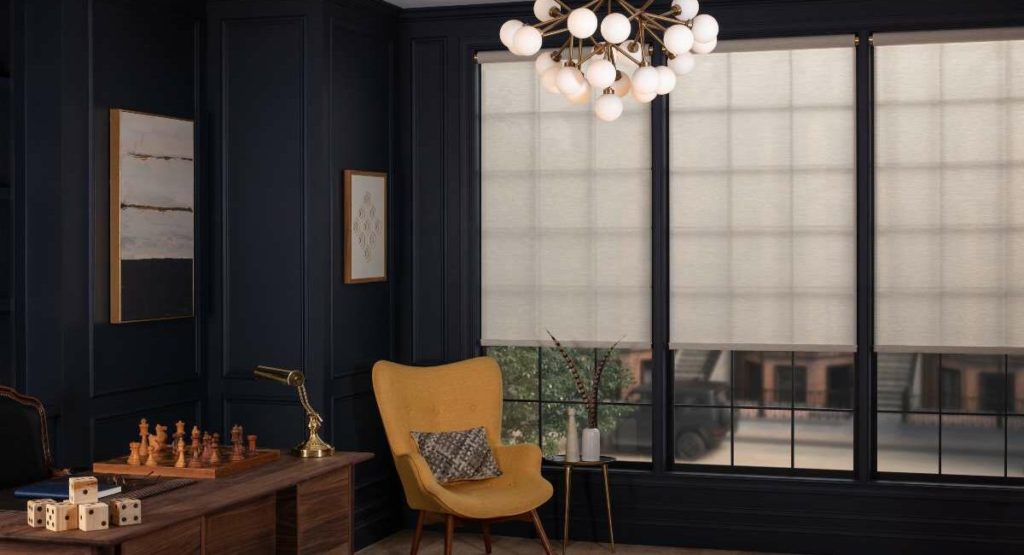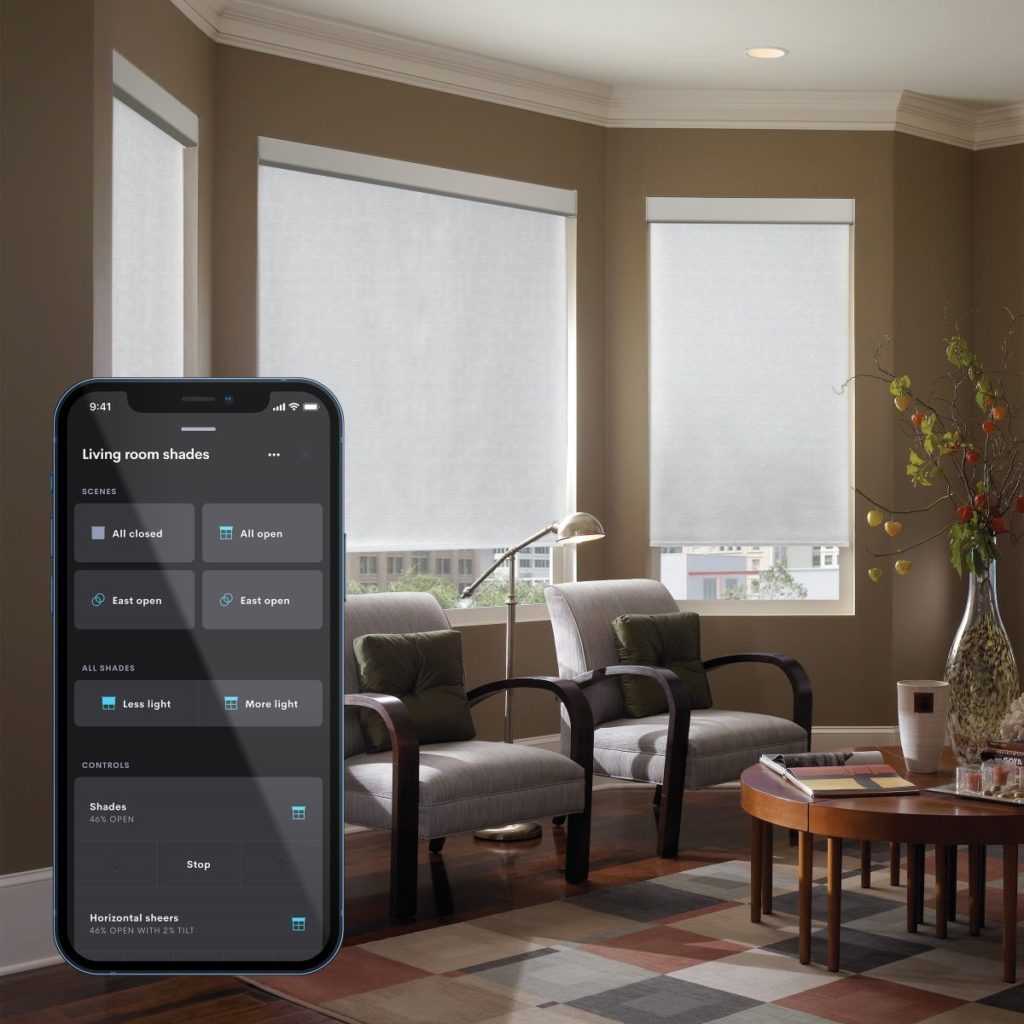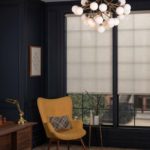Home Tech Trends to Watch in 2022
Let’s look at a few home tech trends that we anticipate will make big leaps this year. Technology plays a big role in our daily lives. It evolves rapidly, making our lives more convenient by making our smart homes smarter and more efficient. The number of connected devices in an average home is on the rise. Consequently, so too is the need for increased bandwidth in the connected home.
Battery-Powered Shades
From firsthand experience, motorized shades are incredibly convenient. 19% of all motorized shades are battery-powered. And 28% of projects will include at least one exposed roller shade (according to a recent CE Pro study). Both technology trends are on the upswing.
While it is great to run wiring for shades to power them remotely, that’s not always possible – especially in existing homes. Battery-powered shades are ideal for retrofit applications. And also for windows located on surfaces where wires can’t be pulled. Both Crestron and Lutron – two manufacturers that we have worked with for years – have added new battery-powered options to their motorized shade solutions.

The new Lutron Palladiom Wire‐Free Shading System (above) is an exposed roller shade with a minimal profile that is completely wire‐free. Palladiom wire free shades feature replaceable batteries that are completely concealed within the shade, but accessible when needed. They also contain an integrated RF antenna for wireless communication, and an efficient drive that can run longer on fewer batteries.
Crestron battery powered shades (below) feature fast, reliable wireless communications, energy efficient operation for long battery life, silent operation. Crestron battery powered shades also seamlessly integrate with the Crestron Home platform.

Voice Control
Anthropologically speaking, voice has always been the preferred method of communication for homo sapiens. Thus, it is no surprise the use of voice control has been gaining and will continue to gain momentum. According to TechCrunch, over a quarter of US adults now own a smart speaker. Per Google, 72 percent of people who own voice-activated speakers using them daily as part of their routines.
Voice control is evolving far beyond smart speakers. It is also used to control multiple systems within the home. Imagine you’re cooking dinner and wishing the TV was on in the background and perhaps the task lighting was a bit brighter. But you’re elbows deep in food prep – yes, you could stop what you’re doing, wipe your hands off and grab your smart phone or some other control. But, wouldn’t it be more convenient, not to mention faster, to just tell your home to handle the task?
Josh.ai is an exciting option for the smart home. It allows homeowners to control their systems with more natural language. And unlike other systems, it focuses on privacy and does not sell nor utilize your data for advertising. Voice control is not just for tech enthusiasts and younger generations – it is being embraced by all ages for its simplicity and ease of use. And, as a large portion of our population begins to age in place, voice control is a good solution for those with poor vision or mobility.
Motorized Outdoor Shades
Here in the Midwest, we have a somewhat limited window of time to enjoy our outdoor living spaces. Motorized outdoor shades help to enhance our outdoor living spaces during the Spring, Summer and Fall months, and even extend the season a bit.
Depending on the fabric selection, an outdoor shade can retain heat (or cooling), reduce UV rays and block out the majority of dust (and insects!), while allowing visibility through the shade. It is possible to enjoy fresh breezes and unobstructed views, and then lower shades with the press of a button.

Increased Use of Fiber Cabling
The growing number of connected devices per household demands faster cable infrastructure. Fiber optic cable accommodates demanding network and audiovisual needs. The speed of data and WiFi networks may now exceed what is possible over traditional copper “category” cable. But fiber provides more than enough bandwidth, both for now and in the future. For large homes or properties with multiple buildings (or remote cameras, WiFi, etc), it also improves system reliability as it can send data vast distances and is immune to lightning strikes and power surges.
It is not just the number of products creating demands on bandwidth; it’s also the growing sophistication of technology and ensuring devices are functioning to their full potential. Today’s 4K and 8K Ultra HD video exceed the capabilities of copper cabling. Why invest in a high-performance 8K TV if the video and audio come through compressed? Updating cabling to support new technology is as important as updating the technology devices themselves.




